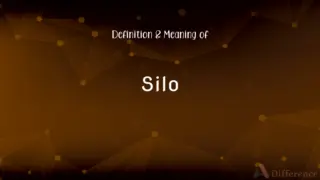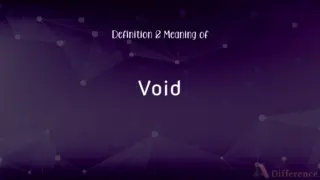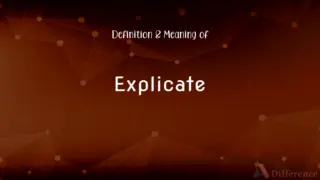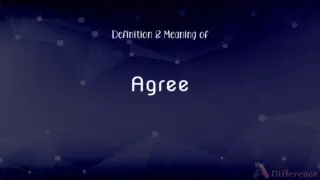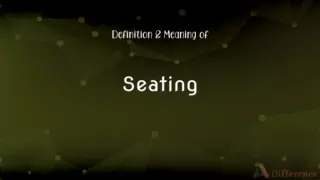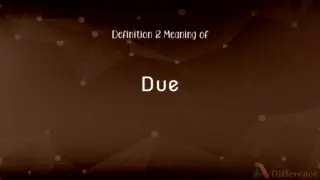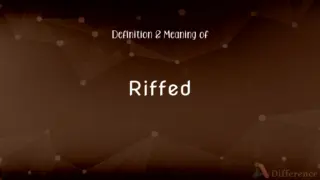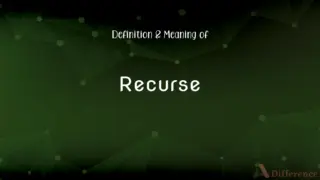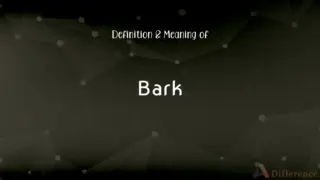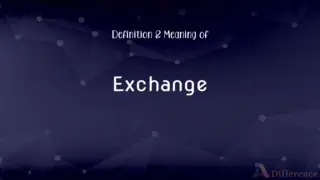Bristled Definition and Meaning
By Maham Liaqat & Urooj Arif — Published on June 19, 2024
Bristled means to have one's hair stand up or to react in an angry or offended manner. e.g., The cat bristled at the sight of the dog.
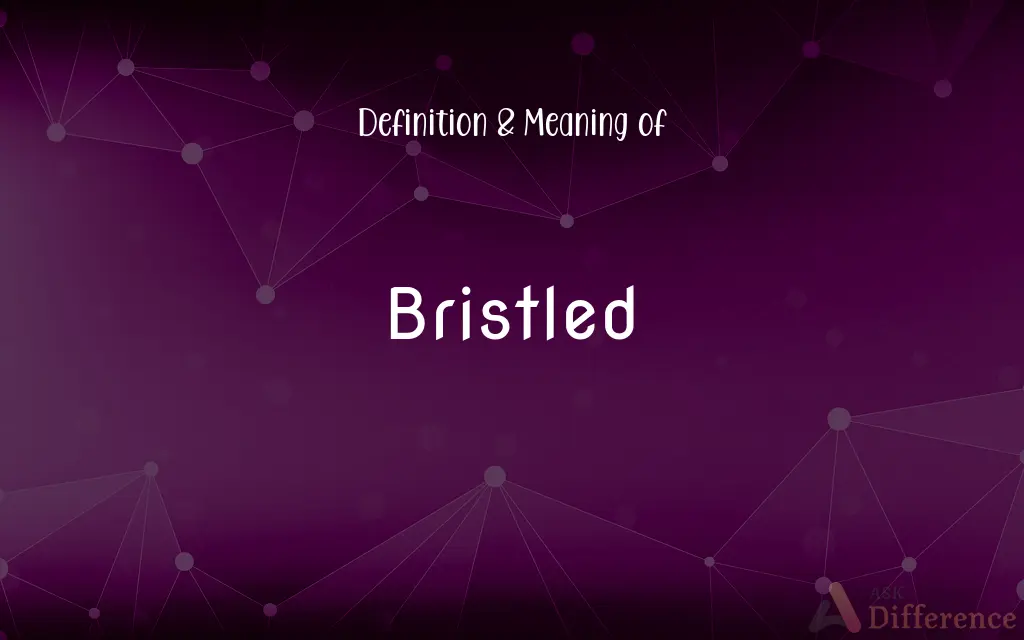
Table of Contents
Bristled Definitions
To show irritation or anger.
She bristled at the rude comment.
To make stiff and spiky.
The frost bristled the leaves on the trees.
To become rigid with anger or irritation.
Her demeanor bristled upon receiving the unfair critique.
To cause to stand erect by brushing or rubbing.
She bristled her hair with a comb for the electrified look.
To be covered or furnished with bristles.
The brush is bristled with fine synthetic fibers.
To react defensively, typically by becoming tense or confrontational.
He bristled at the suggestion of wrongdoing.
To stand up figuratively in opposition or readiness to act.
The community bristled in response to the proposed law.
To be abundantly supplied or filled with something that stands up or protrudes.
The field was bristled with wildflowers.
To have hair or fur stand upright, especially as a reaction to fear or aggression.
The dog bristled when it heard the thunder.
A stiff hair.
A stiff hairlike structure
The bristles of a wire brush.
To stand stiffly on end like bristles
The hair on the dog's neck bristled.
To raise the bristles
The cat bristled at the sight of the large dog.
To react in an angry or offended manner
The author bristled at the suggestion of plagiarism.
To be covered or thick with or as if with bristles
The path bristled with thorns.
To cause to stand erect like bristles; stiffen.
To furnish or supply with bristles.
To make bristly; ruffle.
Infl of bristle
Having bristles
Having or covered with protective barbs or quills or spines or thorns or setae etc.;
A horse with a short bristly mane
Bristly shrubs
Burred fruits
Setaceous whiskers
To raise the bristles, as in an animal's fur, as a sign of readiness to fight or confront.
The porcupine bristled its quills at the approach of a predator.
Bristled Snonyms
Irritated
Showing or feeling slight anger or annoyance.
She was irritated by the constant interruptions.
Agitated
Feeling or appearing troubled or nervous.
The unfair accusation left him visibly agitated.
Incensed
Very angry; enraged.
She was incensed by the blatant injustice.
Annoyed
Slightly angry; irritated.
He became annoyed at the lack of clarity in the instructions.
Infuriated
Extremely angry; enraged.
The dishonest response infuriated him.
Upset
Unhappy, disappointed, or worried.
The cancellation of the event upset many people.
Angered
Made angry.
He was angered by the betrayal of his friend.
Ruffled
To disturb the smoothness or tranquility of.
His feathers were ruffled by the dismissive remark.
Offended
Resentful or annoyed, typically as a result of a perceived insult.
He was deeply offended by the offensive joke.
Fumed
Expressed great anger.
She fumed over the lost opportunity.
Bristled Example Sentences
The brush was densely bristled, perfect for painting fine details.
The forest path was bristled with thorns and brambles.
She bristled at the accusation, denying any involvement.
She bristled at the thought of conceding defeat.
The old warrior's beard bristled with gray, a testament to his experience.
The audience bristled with anticipation as the performer took the stage.
The cat bristled and hissed when it encountered the unfamiliar dog.
He bristled under the critical gaze of his supervisor.
The news report bristled with errors, frustrating the readers.
His arms bristled with tattoos, each telling a story.
As the debate intensified, the panelists bristled, each ready to defend their position.
The community bristled at the proposed changes, ready to voice their opposition.
Common Curiosities
How do we divide bristled into syllables?
Bristled is divided into syllables as bris-tled.
How many syllables are in bristled?
There are two syllables in "bristled."
Why is it called bristled?
It's called "bristled" because it originates from the action of bristles (stiff hair or fur) standing erect, which is often a reaction to fear or aggression, and metaphorically extends to human reactions of anger or irritation.
What is a stressed syllable in bristled?
The stressed syllable in "bristled" is the first syllable, "bris-."
What is the root word of bristled?
The root word is "bristle," which refers to a short stiff hair, typically one of those on an animal's skin.
What is the first form of bristled?
The first form is "bristle," as in the base form of the verb.
What is the singular form of bristled?
As an adjective or verb in past tense, "bristled" does not change form between singular and plural uses.
How is bristled used in a sentence?
e.g., The cat bristled at the sight of the dog.
What is the pronunciation of bristled?
Bristled is pronounced as /ˈbrɪsəld/.
What is the verb form of bristled?
The verb form is "bristle," as in "to bristle at something."
What part of speech is bristled?
"Bristled" is an adjective describing something that is covered with or having bristles. It is also the past tense of the verb "bristle."
Is bristled a noun or adjective?
"Bristled" is primarily used as an adjective. It can also be the past tense of the verb "bristle."
Is bristled a vowel or consonant?
The word "bristled" starts with a consonant.
Is the word bristled imperative?
The word "bristled" is not imperative; it is an adjective or the past tense of a verb.
What is the third form of bristled?
The third form of "bristle" is also "bristled," used as the past participle.
What is another term for bristled?
Another term for "bristled" is "ruffled" when referring to an emotional state, or "stiffened" when referring to the physical reaction of hair or fur.
Is the bristled term a metaphor?
"Bristled" can be used metaphorically to describe human emotional reactions in terms similar to an animal's physical reaction.
Which determiner is used with bristled?
Determiners such as "the," "a," or possessive pronouns can be used with "bristled" when it functions adjectivally (e.g., "the bristled surface").
Which vowel is used before bristled?
Typically, the determiner "a" or "the" can be used before "bristled," not specifically a vowel.
What is the second form of bristled?
The second form is "bristled," used as the simple past tense and past participle of the verb "bristle."
Is bristled an abstract noun?
"Bristled" is not a noun; it is an adjective or the past tense of a verb.
Is bristled a negative or positive word?
"Bristled" generally has a negative connotation, indicating anger, irritation, or fear.
Is the word bristled Gerund?
No, "bristled" is not a gerund. The gerund form of "bristle" would be "bristling."
Which preposition is used with bristled?
Prepositions like "at" or "with" can be used with "bristled," depending on the context (e.g., "bristled at," "bristled with").
Which conjunction is used with bristled?
Conjunctions such as "and" or "but" can be used in sentences with "bristled" to connect clauses or phrases.
Which article is used with bristled?
Both "a" and "the" can be used with "bristled," depending on whether it is used in a specific or general sense (e.g., "a bristled reaction," "the bristled fur").
What is the opposite of bristled?
The opposite of "bristled" could be "smoothed" for fur or hair, or "calmed" when referring to an emotional reaction.
Is bristled a collective noun?
No, "bristled" is not a collective noun.
Is the word “bristled” a Direct object or an Indirect object?
"Bristled" can describe a direct object (e.g., "The bristled cat") but is not itself a direct or indirect object.
What is the plural form of bristled?
The form "bristled" remains the same regardless of singular or plural context when used as an adjective or verb in past tense.
Is bristled an adverb?
No, "bristled" is not an adverb.
Is bristled a countable noun?
"Bristled" is not a noun; therefore, it is neither countable nor uncountable.
Share Your Discovery

Previous Term
Fantasise Definition and Meaning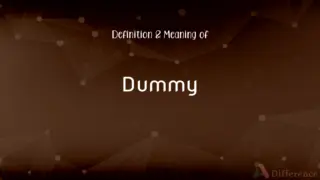
Next Term
Dummy Definition and MeaningAuthor Spotlight
Written by
Maham LiaqatCo-written by
Urooj ArifUrooj is a skilled content writer at Ask Difference, known for her exceptional ability to simplify complex topics into engaging and informative content. With a passion for research and a flair for clear, concise writing, she consistently delivers articles that resonate with our diverse audience.












